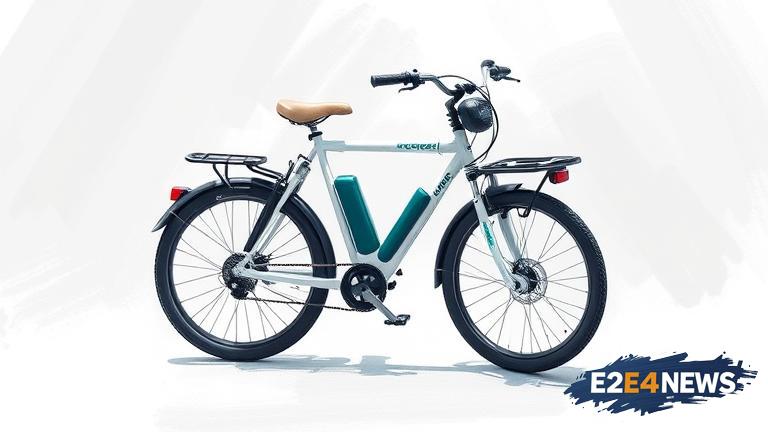The e-bike market is undergoing a significant transformation, with manufacturers focusing on creating adaptable and flexible products that cater to diverse consumer needs. This shift is driven by advances in technology, evolving consumer preferences, and the increasing demand for sustainable transportation solutions. As the industry continues to grow, companies are investing heavily in research and development to create e-bikes that are not only environmentally friendly but also versatile and user-friendly. One of the key areas of innovation is in the development of modular e-bike systems, which allow riders to easily customize and upgrade their vehicles. This approach enables manufacturers to reduce production costs, increase efficiency, and provide consumers with a wider range of options. Furthermore, the integration of advanced materials and technologies, such as carbon fiber and artificial intelligence, is enhancing the performance, safety, and overall riding experience of e-bikes. The rise of e-bike sharing systems and subscription services is also contributing to the growth of the industry, making it more accessible and convenient for consumers to adopt e-bikes as a mode of transportation. In addition, governments and cities are implementing initiatives to promote the use of e-bikes, such as investing in infrastructure and offering incentives for consumers to purchase e-bikes. The focus on adaptability and flexibility is also driven by the increasing demand for e-bikes that can be used for various purposes, such as commuting, recreational riding, and cargo transportation. As a result, manufacturers are designing e-bikes with interchangeable parts, adjustable settings, and versatile accessories, allowing riders to tailor their vehicles to suit their specific needs. The development of e-bikes with advanced safety features, such as anti-lock braking systems and blind spot detection, is also a key area of focus. Moreover, the industry is witnessing a growing trend towards the integration of e-bikes with other modes of transportation, such as public transit and car-sharing services, to create seamless and efficient mobility solutions. The rise of e-bike tourism is another significant trend, with companies offering guided tours and rental services that cater to the growing demand for experiential travel. The e-bike industry is also experiencing a shift towards more sustainable and environmentally friendly practices, with manufacturers prioritizing the use of recycled materials, reducing waste, and implementing eco-friendly production processes. As the industry continues to evolve, it is likely that we will see even more innovative and adaptable e-bike designs, driven by advances in technology and changing consumer demands. The future of e-bikes looks promising, with the potential to revolutionize the way we travel and transform the transportation landscape. With the increasing focus on adaptability and flexibility, e-bikes are poised to become an integral part of our daily lives, providing a convenient, sustainable, and enjoyable mode of transportation. The e-bike industry is expected to continue growing, driven by the increasing demand for sustainable transportation solutions and the ongoing innovation in technology and design. As consumers become more aware of the benefits of e-bikes, we can expect to see a significant shift towards the adoption of e-bikes as a primary mode of transportation. The industry is also likely to witness a growing trend towards the development of e-bikes with advanced health and fitness features, such as integrated fitness tracking and personalized coaching. Overall, the future of e-bikes is exciting and promising, with the potential to transform the transportation landscape and provide a sustainable, convenient, and enjoyable mode of transportation for consumers around the world.





